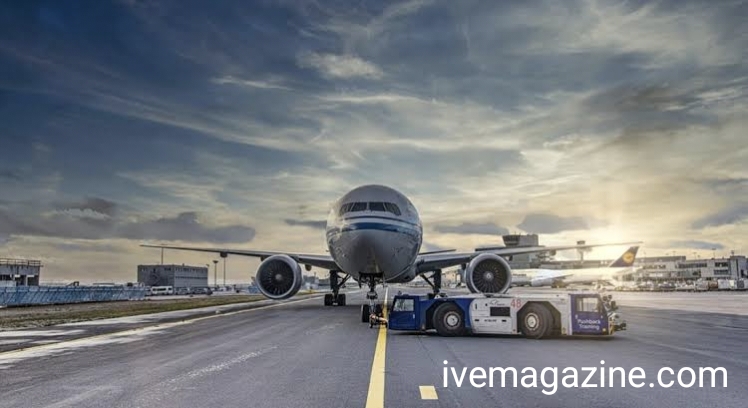📰 Introduction
When United Airlines Flight UA770 emergency diversion made headlines, it sparked concern and curiosity. Therefore, this article examines the incident thoroughly, offering insights and clarity. Let’s break down the event, implications, safety measures, and traveler guidance using clear headings and helpful facts.
1. What Happened on Flight UA770?
United Airlines Flight UA770 was en route from San Francisco to Tokyo when it encountered an unexpected problem. Mid-flight, passengers reported a sudden drop in cabin pressure and alarm signals. Consequently, the captain declared an emergency and began a rapid descent to the nearest airport. Thanks to skilled crews and strict protocols, the aircraft landed safely without any injuries.
2. Timeline of the Emergency Diversion
| Time (Local) | Event Description |
|---|---|
| 08:30 AM | Flight UA770 took off from San Francisco International Airport |
| 11:00 AM | Cabin pressure warning activated; oxygen masks briefly deployed |
| 11:05 AM | Captain announced emergency and notified air traffic control |
| 11:20 AM | Aircraft performed controlled descent toward Anchorage International Airport |
| 11:45 AM | Safe landing completed; emergency crews inspected and passengers deplaned |
The streamlined response ensured no further complications.
3. Why Do Aircraft Diversions Happen?
Aircraft diversions, such as the United Airlines Flight UA770 emergency diversion, occur for several reasons. These range from technical malfunctions, medical emergencies onboard, to environmental conditions like severe turbulence. In this case, immediate cabin pressurization issues triggered alarm systems and oxygen mask deployment. Airlines and pilots prioritize safety, and diverting is often the most prudent approach.
4. Passenger Experience During the Diversion
For passengers, the diversion of United Airlines Flight UA770 was undoubtedly unnerving. Initially, some felt ear discomfort due to the rapid altitude change. Nevertheless, flight attendants administered calm, clear instructions. As the plane descended, oxygen masks dropped just a few seconds, and announcements provided context. Once the aircraft landed, ground staff swiftly assisted passengers with onward travel arrangements.
5. How Pilots and Crew Respond to Emergencies
Pilots undergo continuous training for emergencies. They follow standardized checklists and protocols — from declaring emergencies to coordinating with air traffic control. Likewise, cabin crews maintain cabin safety and support passenger needs. In the UA770 incident, the crew initiated a rapid descent and communicated effectively, showcasing their high level of preparedness and composure.
6. Aircraft Inspection and Next Steps
After landing, technicians conducted a detailed inspection of UA770. This included verifying cabin pressure sensors, structural integrity, and oxygen systems. The aircraft underwent a thorough systems check before resuming scheduled operations. Additionally, a safety report was filed with civil aviation authorities to document the event and recommend preventive maintenance or procedures.
7. How the Diversion Affects Travelers
Travelers experienced delays and route changes. Those heading to Tokyo needed rebooking on subsequent flights. Still, United Airlines provided lodging, meal vouchers, and flexible ticketing options. Moreover, passengers were offered assistance with connecting flights, ensuring minimal stress. Despite inconvenience, airline support and transparency helped smooth the experience.
8. Industry Safety Standards and Regulations
The United Airlines Flight UA770 emergency diversion underscores the aviation industry’s rigorous safety protocols. Aviation authorities, such as the FAA and ICAO, mandate regular checks on pressurization systems and aircraft maintenance. Forced diversions triggered by cabin pressure alerts demonstrate the system’s effectiveness in preventing more severe incidents.
9. Key Takeaways for Travelers
- Know your rights: In diversions, airlines typically offer meals, lodging, and rerouting.
- Stay calm: Crew will guide you with clear steps during emergencies.
- Pack essentials: Always bring a carry‑on with important documents, medications, and chargers.
- Check updates: Airlines issue travel advisories and mobile alerts—stay informed.
- Ask questions: Don’t hesitate to request help at customer service counters.
10. FAQs about United Airlines Flight UA770 Emergency Diversion
Q1. What triggered the emergency diversion on UA770?
A1. A cabin pressurization warning triggered alarms and oxygen mask deployment, initiating the diversion.
Q2. Was anyone injured during the diversion?
A2. No. The crew executed a controlled descent, and the flight landed safely without injuries.
Q3. How did United assist passengers afterward?
A3. They offered meal vouchers, lodging, rebooking services, and customer support for travel adjustments.
Q4. Will this incident affect future UA770 flights?
A4. The aircraft underwent thorough inspection. Once cleared, it will resume flights under enhanced monitoring.
Q5. Should travelers be worried about flying?
A5. Not at all. Diversions reflect effective safety systems designed to protect passengers. Aviation remains one of the safest travel modes.
Q6. Can passengers choose not to continue on the flight?
A6. Yes. Passengers may opt for refunds or alternate arrangements. United Airlines customer service can assist with options.
11. Conclusion
The United Airlines Flight UA770 emergency diversion demonstrates swift emergency response, crew professionalism, and aircraft safety systems’ effectiveness. As a result, what could’ve been a serious incident was resolved safely, with passengers cared for throughout. Travelers should feel confident in airline safety measures—even amid unexpected events.



